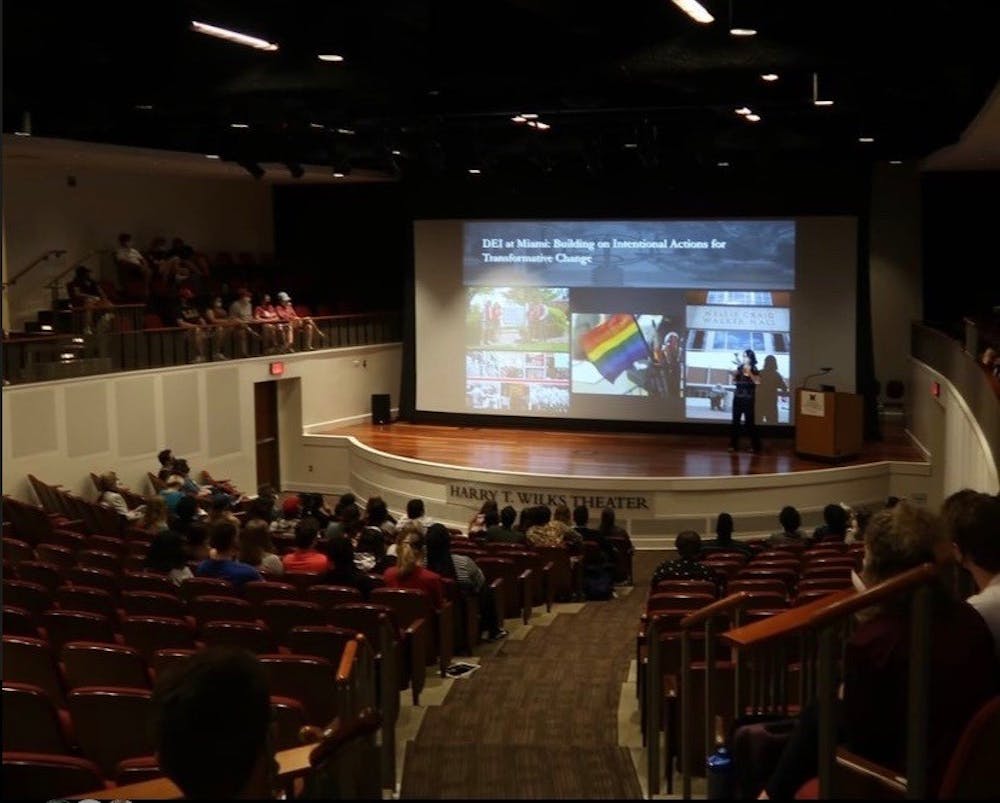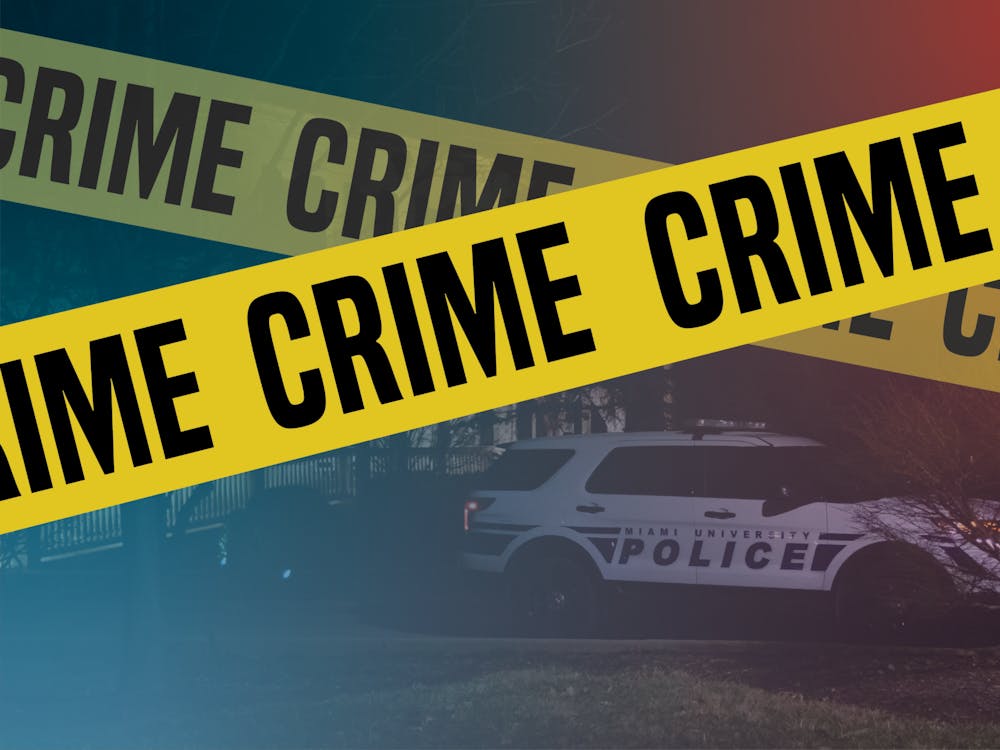Miami University’s Associated Student Government (ASG) and Diversity Affairs Council (DAC) held their third annual Inclusion Forum on Wednesday, Sept. 29, themed “The Call for Advocacy, Activism and Allyship.”
The event was hosted by ASG’s Secretary of Diversity and Inclusion Vada Stephens and DAC president Lena Giang. It was held in Wilks Theater inside the Armstrong Student Center and attracted around 100 students and faculty.
Stephens said it was an honor to plan and host the event.
“It was an awesome experience – a little like a roller coaster because there were so many moving parts, twists and turns, but overall, because I’m passionate about this work, I had a good time,” Stephens said. “And what made the process a little bit smoother … was all of the great partnerships and leaders that I was able to collaborate with.”
The program kicked off with a dance performance by the African Student Union, followed by a presentation by Cristina Alcalde, vice president of institutional diversity, on diversity, equity and inclusion (DEI) efforts at Miami. Jacky Johnson, university archivist, also presented on the history of advocacy and protests at Miami.
Several multicultural student organizations, including Hillel, the Asian American Association and Spectrum also presented. They discussed their organizations and DEI efforts and shared stories about what it means to have a marginalized identity at Miami.
Shams Al Khafaji, secretary of the Middle Eastern Students Association (MESA), was one of the students who spoke.
“I was super excited that … we were invited to this event, because I think Miami needs a voice like ours, and I think Miami needs organizations that are diverse and inclusive,” Al Khafaji said.
Lydia Yamashiro, president of Miami University’s Panhellenic Association, detailed her mission as president to improve DEI initiatives within Greek life. Yamashiro said the association has added a DEI chair or committee to each of its chapters on campus.
The second half of the event included a panel of several university staff working in areas related to DEI. The panel, moderated by The Miami Student’s Assistant Campus & Community Editors Cosette Gunter and Shr-Hua Moore, addressed multiple DEI topics at Miami.
Nloh Masango-Dibo, director of the Center for Student Diversity and Inclusion (CSDI) talked about being mindful about welcoming students back to in-person programming.
“If you came into the university while we were having a pandemic, you probably didn’t have the best experience of meeting new people or having a community,” Masango-Dibo said. “So we try to be very intentional on how we create those spaces where students can come in and find [either] like minded people, folks who look like them or meeting new people so they can learn something.”
Enjoy what you're reading?
Signup for our newsletter
Kimberly Vance, director of Student Activities and Fraternity and Sorority Life, continued the conversation about DEI within Greek life.
“Our staff ... is providing [Greek affiliated students] with very intentional educational experiences, so they know why they need to be aware, and then how to move into those next phases of advocacy and so on,” Vance said.
Jaymee Lewis-Flenaugh, deputy Title IX coordinator, discussed how to balance supporting students and current Title IX policies, while awaiting changes from the Biden administration.
“We've been making sure that student groups, faculty, staff – that everyone has an awareness of what the process looks like, but also what additional supports, what accommodations are available for students, just to make sure that they're able to be successful students and humans at Miami,” Lewis-Flenaugh said.
Jonika Moore, senior associate director of admissions, addressed the declining percentage of students of color at Miami and how it can be mitigated with recruitment and retention efforts.
“I think that part of bringing students here – part of it is making them aware of Miami, providing the financial resources, but also the places and spaces for them to connect,” Moore said.
Moore highlighted the Bridges Program as an example of both recruiting and retaining students, and said creating these programs that have physical spaces and offices is important for building connections.
Rosemary Pennington, professor of journalism and liaison to the Council on Diversity and Inclusion (CODI) within University Senate, talked about how Ohio House Bills 327 and 322 can affect higher education if passed.
“The beauty of higher education is that we bring you to this space, and we make you uncomfortable,” Pennington said. “We introduce you to different ideas and different experiences … Those house bills could have a truly chilling effect on our ability to have those kinds of experiences.”
Student Body President Madelyn Jett and Vice President Aidan McKeon gave updates on one of the pillars of their campaign, which included advocating for transgender students.
“We thought it would be a really good opportunity to create a new director position, specifically to get a student an opportunity at a high level, like on the Associated Student Government cabinet, to advocate for [transgender] issues on campus,” McKeon said.
The event wrapped up with closing remarks from Stephens and a reception outside of Cafe Lux.
Emily Mazurek, junior geology and environmental science double major, attended the event and said she enjoyed hearing stories from the student organizations that presented.
“Educating the people at this university, specifically us white individuals, is important and hearing their stories and understanding they’re having hardships we can’t comprehend, and I think it’s important that they did this tonight,” Mazurek said.
Stephens also thought having events where students can tell their stories is crucial.
“I think it’s important to have events like this,” Stephens said, “because our university needs to constantly be met with the truth of our students – the truth of their stories, their identities, their communities.”




